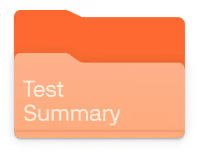
Key Benefits
- Spot autoimmune thyroid attack by detecting antibodies that target and inflame your thyroid.
- Clarify if fatigue, weight changes, or palpitations stem from autoimmune thyroid disease.
- Flag higher risk of future hypothyroidism, even when TSH is normal.
- Guide treatment timing and monitoring when thyroid levels are borderline or unstable.
- Protect fertility plans by flagging thyroid autoimmunity linked to miscarriage and subfertility.
- Support pregnancy care by guiding tighter TSH targets and postpartum thyroid flare monitoring.
- Track antibody trends to inform follow-up frequency, especially after pregnancy or treatment.
- Best interpreted alongside TSH, free T4, and your thyroid symptoms.
What is Thyroid antibodies?
Thyroid antibodies are immune proteins that target parts of the thyroid gland. They are made by B cells when immune tolerance slips and the thyroid is mistaken for a threat (autoantibodies). The main types are antibodies against thyroid peroxidase (TPO antibodies), against thyroglobulin (Tg antibodies), and against the thyroid‑stimulating hormone receptor (TSH receptor antibodies, or TRAb). They are generated in lymphoid tissues and often within the thyroid itself, where immune cells gather during inflammation.
Their significance is that they reveal immune activity directed at the thyroid. TPO and Tg antibodies flag immune engagement with the enzymes and proteins used to make and store thyroid hormone, and can contribute to inflammation that disrupts hormone synthesis. TSH receptor antibodies bind the receptor that normally responds to pituitary TSH; some stimulate it and drive hormone production and growth (stimulating TRAb/TSI), while others block it and dampen signaling (blocking TRAb). Together, thyroid antibodies indicate a loss of self‑tolerance focused on the thyroid (autoimmune thyroid disease) and help explain changes in thyroid function and gland structure over time.
Why is Thyroid antibodies important?
Thyroid antibodies are immune proteins against key thyroid proteins—thyroid peroxidase (TPO), thyroglobulin, and the TSH receptor. They show whether the immune system is targeting the gland that sets metabolic tempo for every organ, and can precede or accompany hormone shifts that affect energy, heart rhythm, mood, weight, cholesterol, bone, fertility, pregnancy, and growth.
Results are generally reported as negative or below a lab-specific cutoff; optimal tends to be negative or very low. Even modest elevations can signal autoimmune activity despite normal TSH and free T4, flagging higher future risk of dysfunction.
When values are negative or very low, they reflect immune tolerance and intact thyroid tissue. Hormone output is steady, and symptoms are absent. In pregnancy, negative antibodies align with lower risk of miscarriage and postpartum thyroiditis. In children and teens, they support normal growth and on-time puberty.
Elevated anti-TPO or anti-thyroglobulin points to Hashimoto’s, where chronic injury leads to hypothyroidism—fatigue, cold intolerance, weight gain, constipation, and higher LDL. TSH receptor antibodies indicate Graves’ disease, driving hyperthyroidism—palpitations, heat intolerance, weight loss, anxiety, tremor, and eye changes—affecting heart rhythm and bone. Women are affected more; elevations link to menstrual irregularity, subfertility, pregnancy loss, and postpartum thyroiditis. In youth, autoimmunity can slow growth or speed metabolism and affect school performance.
Ultimately, these antibodies connect immune and endocrine health, guide interpretation of TSH/free T4/T3 and imaging, and forecast cardiovascular, skeletal, and cognitive risks.
What Insights Will I Get?
Thyroid antibodies measure immune proteins directed against thyroid components—most commonly thyroid peroxidase (TPOAb), thyroglobulin (TgAb), or the TSH receptor (TRAb/TSI). They matter because thyroid autoimmunity can alter gland structure and hormone output, influencing energy production, metabolic rate, heart rhythm and temperature control, cognition and mood, and reproductive function across the lifespan.
Low values usually reflect absent or minimal thyroid‑directed autoimmunity, with intact immune tolerance and preserved thyroid tissue. Physiology is typically steady, with consistent thyroid hormone output supporting stable metabolism and cardiovascular and cognitive function. In pregnancy, low or undetectable antibodies are expected and signal low risk of thyroid‑related complications.
Being in range suggests antibody levels below the lab’s positivity threshold or very low titer, indicating stable immune–thyroid balance. For antibodies, optimal generally sits at the negative/undetectable end rather than at the high end of “normal,” and aligns with predictable thyroid hormone production.
High values usually reflect thyroid autoimmunity. Elevated TPOAb or TgAb indicate autoimmune thyroiditis (Hashimoto’s), raising the likelihood of progressive thyroid underactivity (hypothyroidism) and occasionally a transient overactive phase from thyroid inflammation (thyrotoxicosis). Elevated TRAb/TSI indicate Graves’ disease, which drives excess thyroid hormone (hyperthyroidism) and can involve the eyes (orbitopathy). Antibodies are more common in women and increase with age. In pregnancy, TPOAb positivity is linked to higher risks of miscarriage, preterm birth, and postpartum thyroiditis; high TRAb can cross the placenta and affect the fetal thyroid.
Notes: Interpretation depends on TSH and free T4/T3, and sometimes ultrasound. Titers can fluctuate, differ by assay, and may precede hormone changes by years. Certain drugs (checkpoint inhibitors, interferon, amiodarone, lithium) and iodine excess can trigger or unmask thyroid autoimmunity.






.avif)



.svg)





.svg)


.svg)


.svg)

.avif)
.svg)










.avif)
.avif)
.avif)


.avif)
.png)


